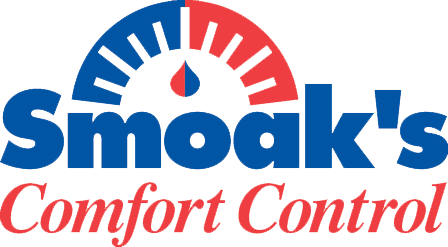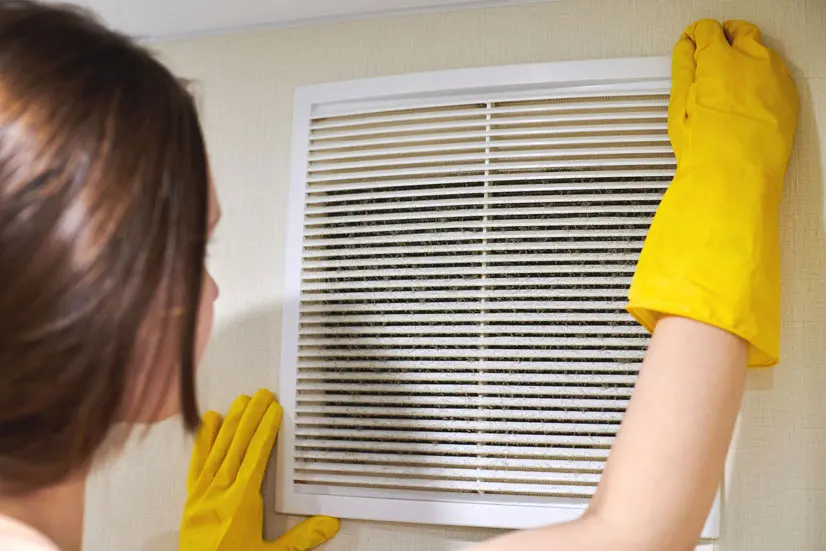HVAC unit malfunctions can result from numerous issues, making it essential to stay on top of your HVAC’s routine preventative maintenance. One of the most common problems you might face with your HVAC unit is clogged AC drain pipes.
Clogged AC drain lines can result from the build-up of ice, debris, pet dander, dust, dirt, or trash on the exterior and interior coils. These pollutants stick to the AC drain line outside or the AC condenser drain during the cooling process and ultimately cause clogging and prevent proper airflow to the system. Fortunately, there are several DIY things you can do to prevent build-up on your HVAC unit.
Common Signs of Blocked or Clogged AC Drain Pipes to Look Out for
Knowing the common reasons behind the clogging and build-up on your HVAC unit can help prevent the problem from occurring in the first place. Here are some of the common signs that indicate that your AC drain line is clogged from build-up:
Presence of Moisture and Water Around the Air Conditioner Outside
While little moisture or water might not be a significant concern, more than the usual amount of water indicates something is wrong with your AC unit. If you notice your AC condensate drain is dripping water, it’s probably because your unit cannot drain water properly due to build-up. In addition, when you consistently experience high indoor humidity, there are high chances that your AC condensate drain is clogged.
Insufficient Cooling in Your Home
When you notice insufficient heating and cooling in your home, you probably have dirty condenser coils and air filters. When dirt and debris accumulate on the coils and filters, they can cause clogs that restrict airflow.
The heat exchanger overheats due to the trapped heat and shuts off quickly or starts to underperform. If you notice your home is not cooling and your blower is running efficiently, chances are your filter needs replacing.
Moldy or Musty Smells Coming from the AC Vents
Another indication of a drain line problem is the presence of a moldy or musty smell from the AC. If the unpleasant smell is distributed throughout your house, there is a high chance that your central air system has been compromised.
Mold growth can cause build-up in your drain line, eventually causing a clog in the AC condensate line. The presence of mold should not be taken lightly because it can cause allergies or, even worse, asthma.
Presence of Stagnant Water in Your AC’s Drain Pan
When your AC condensate line clogs, water comes back into your home and fills the drain pan under the furnace, air handler, or coil. Once your AC drain pan is full and overflows, it can cause a possibly bigger mess.
A blocked or clogged AC drain line prevents water from proceeding down the drain line and out of your property. When the condensate pan is continuously full, a highly-trained HVAC technician should address the problem immediately to avoid the growth and build-up of mold in your AC unit.
The HVAC Unit is Not Turning On
A condensate pump clogged due to a build-up in your HVAC unit can cause your unit to turn off. A condensate line can trap water in the air conditioner, causing the evaporator coil to turn into ice. The moisture created in the AC drain line can freeze, causing your HVAC unit to turn off and not turn on.
If you notice any of these signs with your HVAC system, we recommend contacting a professional as quickly as possible. A highly-trained HVAC technician will help eliminate clogs and perform necessary repairs to ensure the unit performs well.
How Do I Prevent Build-Up on My HVAC Unit?
Clean and Replace Your Dirty Air Filters
One of the most critical maintenance tasks is to have your air filters cleaned routinely. Dirty, dusty, or clogged air filters interfere with the airflow and reduce the system’s efficiency.
Regular cleaning of your air filters can help prevent dust and dirt from building up on your evaporator coils. Your unit will also work efficiently and to its maximum capacity because there’ll be no blockages. If your air filters are clogged, consider replacing them to ensure your HVAC system’s efficiency.
Flush Your Drain Pipes Regularly to Keep Them Clear
Keep your HVAC drain line clean by flushing it regularly. You can use vinegar solution or warm water. However, refrain from bleach because it can damage your PVC plastic pipes. Flushing your drain pipes can help eliminate algae, mold, or mildew growing inside your drain lines. When mold or algae are left to form, they might build up, causing clogs in the line.
Clear Your AC Condensate Drain
You’ll notice the excess moisture in your home, which might cause your floors, carpets, or walls to discoloration. Pass a stiff wire regularly through the condensate drain channels to keep them clear from build-up. When your drain channels get clogged, they prevent the unit from reducing humidity in your house.
Clear Around Your AC Line
Inspect and clear any available debris around your outdoor HVAC unit. When you don’t clear the area, your outdoor fan unit and the condenser can build up dirt, leaves, and trash, causing blockages.
Contact an Expert for Routine HVAC Maintenance & Tune-Ups
Never neglect preventative maintenance or a tune-up of your HVAC system. The AC’s filters, coils, and other parts of the unit require routine maintenance to ensure the effectiveness and efficiency of the unit throughout the year.
Neglecting preventative maintenance allows a steady decrease in the unit’s performance while increasing energy use. Have a trusted HVAC technician inspect your equipment’s condition to ensure it’s operating at peak performance. If there are any problems, the technician will spot them early and suggest solutions before a significant, more expensive issue arises.
Do You Need Help with Your HVAC System? Trust Smoak’s Comfort Control
If you adopt the above tips, your HVAC unit will efficiently and effectively heat and cool. However, if you notice persistent signs of a clogged or blocked drain line and are unsure what steps to take, please don’t hesitate to contact us. Smoak’s Comfort Control has experienced technicians can handle all of your HVAC needs.

